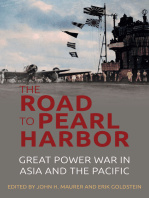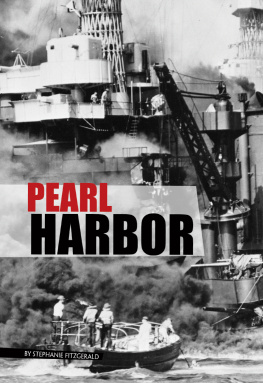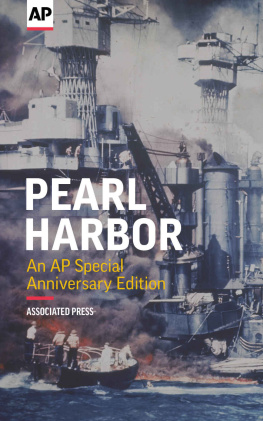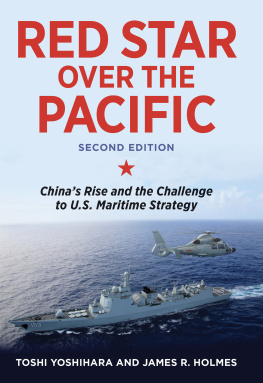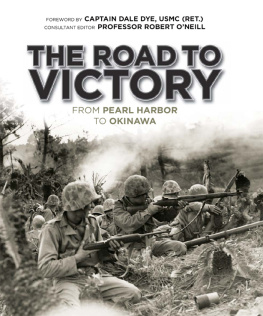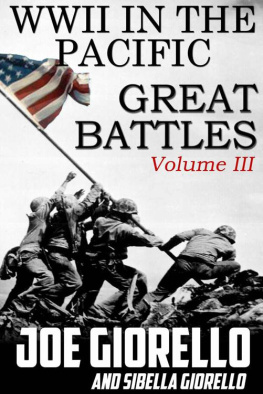Naval Institute Press - The Road to Pearl Harbor: Great Power War in Asia and the Pacific
Here you can read online Naval Institute Press - The Road to Pearl Harbor: Great Power War in Asia and the Pacific full text of the book (entire story) in english for free. Download pdf and epub, get meaning, cover and reviews about this ebook. genre: Politics. Description of the work, (preface) as well as reviews are available. Best literature library LitArk.com created for fans of good reading and offers a wide selection of genres:
Romance novel
Science fiction
Adventure
Detective
Science
History
Home and family
Prose
Art
Politics
Computer
Non-fiction
Religion
Business
Children
Humor
Choose a favorite category and find really read worthwhile books. Enjoy immersion in the world of imagination, feel the emotions of the characters or learn something new for yourself, make an fascinating discovery.
- Book:The Road to Pearl Harbor: Great Power War in Asia and the Pacific
- Author:
- Genre:
- Rating:3 / 5
- Favourites:Add to favourites
- Your mark:
- 60
- 1
- 2
- 3
- 4
- 5
The Road to Pearl Harbor: Great Power War in Asia and the Pacific: summary, description and annotation
We offer to read an annotation, description, summary or preface (depends on what the author of the book "The Road to Pearl Harbor: Great Power War in Asia and the Pacific" wrote himself). If you haven't found the necessary information about the book — write in the comments, we will try to find it.
The Road to Pearl Harbor: Great Power War in Asia and the Pacific — read online for free the complete book (whole text) full work
Below is the text of the book, divided by pages. System saving the place of the last page read, allows you to conveniently read the book "The Road to Pearl Harbor: Great Power War in Asia and the Pacific" online for free, without having to search again every time where you left off. Put a bookmark, and you can go to the page where you finished reading at any time.
Font size:
Interval:
Bookmark:
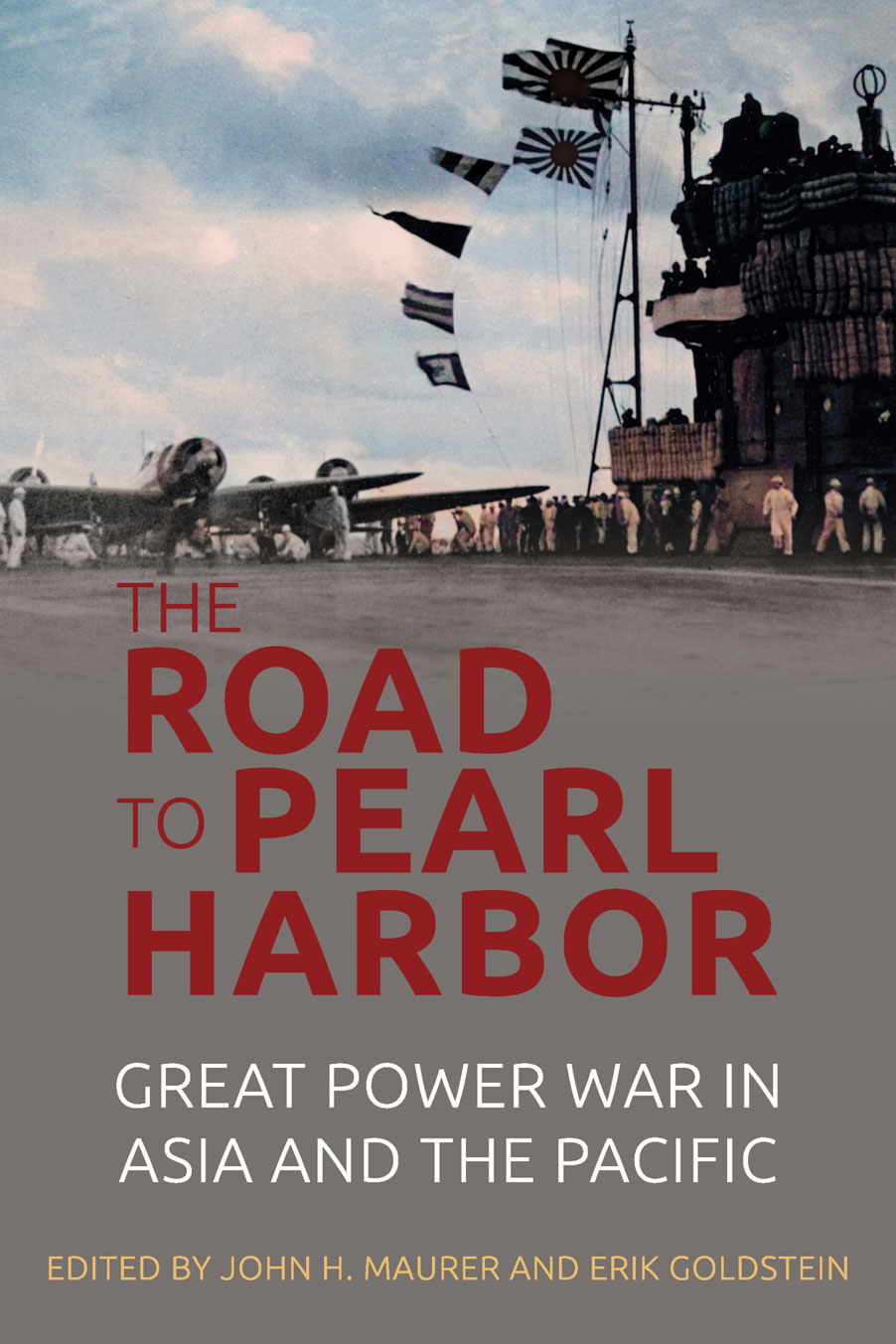
THE
GREAT POWER WAR IN
ASIA AND THE PACIFIC
EDITED BY JOHN H. MAURER AND ERIK GOLDSTEIN
NAVAL INSTITUTE PRESS
ANNAPOLIS, MARYLAND
Naval Institute Press
291 Wood Road
Annapolis, MD 21402
2022 by the U.S. Naval Institute
All rights reserved. No part of this book may be reproduced or utilized in any form or by any means, electronic or mechanical, including photocopying and recording, or by any information storage and retrieval system, without permission in writing from the publisher.
Library of Congress Cataloging-in-Publication Data
Names: Maurer, John H., editor. | Goldstein, Erik, editor.
Title: The road to Pearl Harbor : great power war in Asia and the Pacific / edited by John H Maurer, and Erik Goldstein.
Other titles: Great power war in Asia and the Pacific
Description: Annapolis, Maryland : Naval Institute Press, [2022] | Includes bibliographical references and index.
Identifiers: LCCN 2022014654 (print) | LCCN 2022014655 (ebook) | ISBN 9781682477700 (hardback) | ISBN 9781682477694 (ebook)
Subjects: LCSH: World War, 1939-1945--Causes. | Great powers--Foreign relations--20th century. | Pacific Area--Foreign relations--20th century. | Japan--Foreign relations--1912-1945. | China--Foreign relations--1912-1949. | United States--Foreign relations--1913-1921. | United States--Foreign relations--1933-1945. | Great Britain--Foreign relations--1910-1936. | Conference on the Limitation of Armament (1921-1922 : Washington, D.C.) | BISAC: HISTORY / Wars & Conflicts / World War II / General | HISTORY / Military / United States
Classification: LCC D741 .R528 2022 (print) | LCC D741 (ebook) | DDC 940.53/11--dc23/eng/20220408
LC record available at https://lccn.loc.gov/2022014654
LC ebook record available at https://lccn.loc.gov/2022014655
 Print editions meet the requirements of ANSI/NISO z39.48-1992 (Permanence of Paper).
Print editions meet the requirements of ANSI/NISO z39.48-1992 (Permanence of Paper).
Printed in the United States of America.
30 29 28 27 26 25 24 23 22 9 8 7 6 5 4 3 2 1
First printing
John H. Maurer and Erik Goldstein
| 1 | CONSTRUCTING A LIBERAL INTERNATIONAL ORDER |
| DAVID LLOYD GEORGE AND PEACEMAKING | |
| Erik Goldstein | |
| 2 | RETURN TO GREAT POWER COMPETITION |
| IMPERIAL JAPANS REJECTION OF THE WASHINGTON SYSTEM | |
| Peter Mauch | |
| 3 | TASTING GALL |
| CHIANG KAI-SHEK AND CHINAS WAR WITH JAPAN | |
| Grant F. Rhode | |
| 4 | WINSTON CHURCHILL AND THE GATHERING STORM IN ASIA |
| John H. Maurer | |
| 5 | FDR AND AMERICAS ROAD TO WAR IN THE PACIFIC |
| Walter A. McDougall | |
| 6 | IGNITING THE U.S.-JAPAN WAR, 1941 |
| Richard B. Frank | |
| 7 | CHINESE VIEWS OF FUTURE WARFARE IN THE INDO-PACIFIC |
| FIRST STRIKE AND U.S. FORWARD BASES IN JAPAN | |
| Toshi Yoshihara |
WE ARE DEEPLY GRATEFUL TO THE FOREIGN POLICY RESEARCH Institute for sponsoring and supporting this book. Since the Institutes founding, it has stood for open discussion and for a principled realism in foreign policy and grand strategy. When serving as the Institutes president, Alan Luxenberg was an enthusiastic backer of the project. His firm belief about the importance of studying history to gain perspective on todays foreign policy and strategy dilemmas drove the project forward. The Institutes current President Carol Rollie Flynn also shared our enthusiasm for publishing this book. Her advice and support brought the book to completion. Roger Hertog gave his support to this project and got it off the ground. Roger is a longstanding friend of those who value history as a guiding light that provides clarity in understanding the pressing domestic and international problems of our times. Alan, Rollie, and Roger know that mature study and reflection on the past serves as a sure guide to a better future. At the Naval Institute Press, we want to thank Adam Kane, Glenn Griffith, Jack Russell, Robin Noonan, and Ashley Baird for taking on the book and shepherding it through to publication. We appreciate the careful editing given the manuscript by Drew Bryan. Finally, to Grant, Peter, Rich, Walter, and Toshi, we appreciate the outstanding contribution that you made in writing chapters for the book.
REMEMBER PEARL HARBOR! THAT WAS THE RALLYING CRY FOR the American people during the Second World War. It has been eighty years since imperial Japan attacked the United States on December 7, 1941, a date which will live in infamy, in the words of President Franklin D. Roosevelt in his famous speech to the Congress asking for a declaration of war. The American people, government, and armed forces found themselves caught up in a desperate global struggle from which there could be no turning back. The ordeal of waging a world war transformed the United States into a global superpower. From that day to the present, American power and purpose have played a leading role in shaping the international order.
This volume of essays looks back on the period between the two world wars and examines why the struggle for mastery in Asia resulted in a horrific conflict that cost the lives of millions. Our approach to examining why war occurred has been to underscore the contingent nature of history by highlighting the decisions made by leaders who directed the actions of the great powers. These leaders include David Lloyd George, Chiang Kai-shek, Franklin D. Roosevelt, Winston Churchill, and the uniformed leadership of the Japanese navy. We analyze the menu of foreign policy and strategy choices open to these leaders and explain why the steps they took led to war. In highlighting the role played by these central figures in examining the path to war, we pay close attention to the domestic political and international settings in which they operated. Their internal and external surroundings both provided opportunities for action as well as constrained their policy menu of choice to act creatively.
The outcome of their actions, a great power hegemonic war ranging across Asia and the Pacific, was not inevitable. An alternative prospect existed when in November 1921, statesmen from around the world gathered in Washington to arrest an arms race in naval weaponry and to settle outstanding disputes threatening the peace of Asia. The Washington Conference proved dramatic. The American secretary of state, Charles Evan Hughes, stunned the conference and captured the attention of public opinion around the world in his opening speech, which called for an immediate stop to the naval arms race in the construction of capital shipsthat is, large surface warships, battleships, and battle cruisersthat emerged after the First World War. Hughes highly publicized diplomatic initiative spurred the statesmen in Washington to achieve what had seemed impossible: an arms control agreement that halted construction of the latest, most powerful generation of capital ships. This outcome required that political leaders in Britain, Japan, and the United States agree to overrule their naval advisors, who deemed the acquisition of capital ships to be an urgent strategic necessity. In addition, the negotiations established a treaty framework that promoted the security of the great powers in Asia and the Pacific. At the time, the treaties hammered out in Washington were heralded as a triumph of diplomacy and enlightened statecraft. It is difficult to disagree with that judgment. At the Washington Conference, Britain and the United States took the lead in building a system for international cooperation and security in Asia. Japans leaders, too, partnered with this American and British initiative that promised the prospect of enduring peace.
Next pageFont size:
Interval:
Bookmark:
Similar books «The Road to Pearl Harbor: Great Power War in Asia and the Pacific»
Look at similar books to The Road to Pearl Harbor: Great Power War in Asia and the Pacific. We have selected literature similar in name and meaning in the hope of providing readers with more options to find new, interesting, not yet read works.
Discussion, reviews of the book The Road to Pearl Harbor: Great Power War in Asia and the Pacific and just readers' own opinions. Leave your comments, write what you think about the work, its meaning or the main characters. Specify what exactly you liked and what you didn't like, and why you think so.

